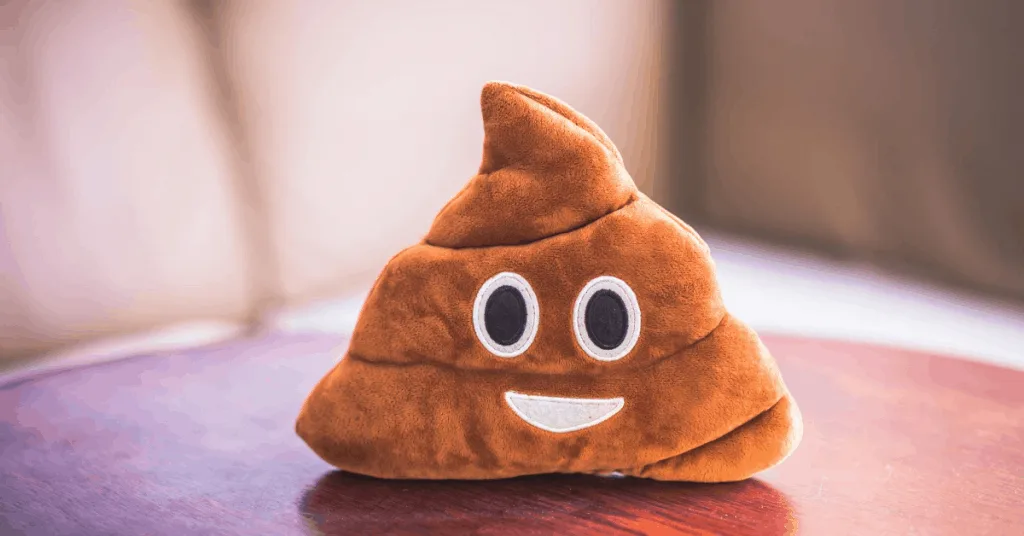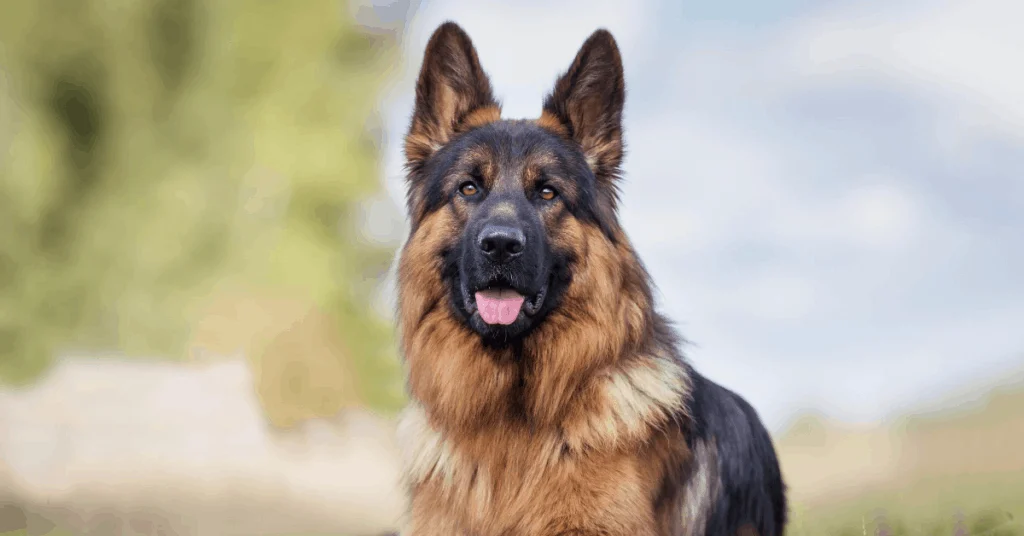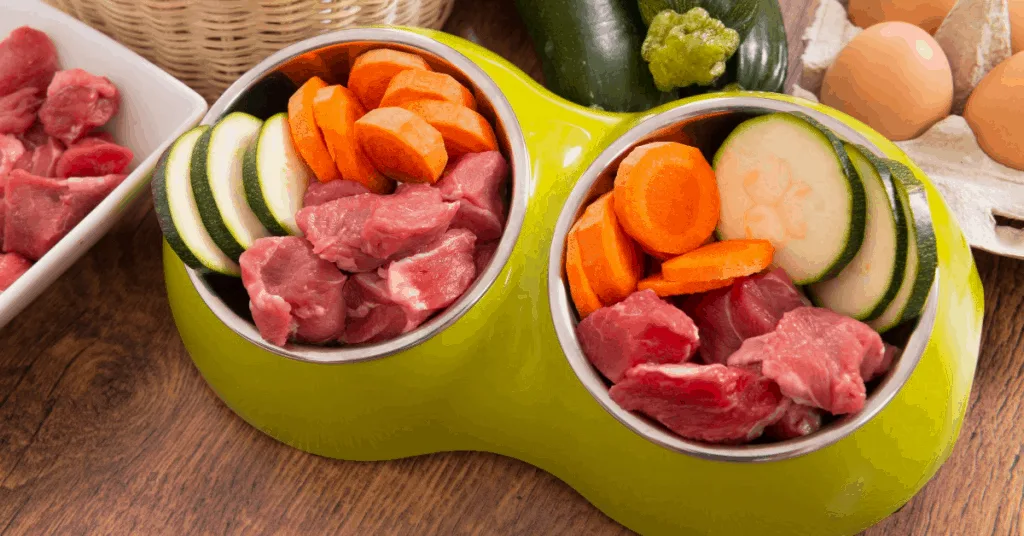
Have you ever heard of coprophagia or coprophagy? It comes from the Greek words kopros which means feces and fagein – to consume.
Occasional consumption of feces is considered normal behavior for German Shepherds. However, a problem can arise when consumption becomes frequent and obsessive.
German Shepherds eat poop for a multitude of reasons. However, the most common reasons for this behavior are hunger, parasites, anxiety, a diet lacking in proper nutrients, behavioral issues, or an underlying health issue.
Click Here to Jump to a Section
What is Coprophagia?
Coprophagia (consumption of feces) can be divided into 3 groups. These are:
1. Autocoprophagia: means a dog consuming its own feces
2. Intraspecific coprophagia: the consumption of feces of other dogs
3. Interspecific coprophagia: the consumption of feces of other animals and humans.
Theories and Studies on Coprophagia
So why might your GSD exhibit this highly unappealing behavior?
Studies have shown that, historically, many dogs in developing countries developed a taste for feces while scavenging through trash (including feces) while trying to scavenge their next meal.
While this behavior may seem rather indiscriminate, studies have also shown that the same dogs actually displayed a level of discernment, as they showed a disinclination to consume feces more than 2 days old.
It is also theorized that this behavior in dogs is an emulation of the behavior of dogs’ ancient wolf ancestors.
Wolves that are old or injured attempt to clean up their den areas that are shared with others by eating their feces.
This is because they are intuitievely aware that the feces contains parasites.
By consuming the feces within two days of defecating, it is ensured that the feces will be consumed before any parasite eggs hatch and infect any other wolves present.
What Are the Reasons Why German Shepherds Eat Poop?

While there are many reasons why GSDs may eat poop, some of the most common reasons are as follows:
Underfeeding
Hungry dogs, dogs who do not eat regularly, or are starving are more likely to eat the feces of other dogs, animals, and humans.
Dogs that eat only once a day and start eating poop may need more daily meals.
Malabsorption
Sometimes a GSD will eat feces if he is fed poor quality food long-term, especially if the food is high in fat content.
If the nutritional value of food is low, a GSD may eat his own or some other animal’s poop in an attempt to make up for the insufficient amount of nutrients in his own food.
Boredom, Stress, Anxiety, and Frustration
Sometimes a GSD will eat poop if he is bored, lonely, or simply wants to attract attention.
Eating poop can also occur in dogs that are nervous, frightened, or under the influence of stress. Stress is a common cause of behavioral problems in dogs.
If you feel that this may be the case with your GSD, it may be wise to consult with a dog trainer or behaviorist. A solution may be as simple as alleviating boredom.
Imitation
Sometimes a German Shepherd will simply emulate the behavior of his owner (NO – not what you’re thinking!) – when a GSD sees his owner picking up poop, he may try to do the same by eating it.
Other times, a GSD may see another dog eating feces, so he will want to try it too.
It is also not uncommon for a young puppy to see his mother eating feces. It is common for a puppy to then simply imitate the behavior.
Punishment
If a GSD is being verbally scolded for pooping in the house, he may resort to eating his own feces in an attempt to make it disappear – no body, no crime!
It is for this reason that it is very important to never scold your dog for pooping in the house. The true solution is proper potty training.
For a detailed understanding of how to potty train your GSD puppy, I have written an excellent article for you right here.
Exocrine Pancreatic Insufficiency
Although in most cases the cause of poop consumption is related to a dog’s behavior, the cause can also be various health problems.
For example, when intestinal parasites are present, they exhaust the body and draw nutrients from it, causing your dog to feel increased hunger.
If your GSD’s stool suddenly becomes soft or it looks like the food is not well digested, it is appropriate to consult a veterinarian who will do an analysis and test the stool for parasites.
A very common cause of this issue in German shepherds can be the Exocrine pancreatic insufficiency (EPI).
This is a condition characterized by a lack of digestive enzymes, which results in the inability to digest food properly, and thus leads to the inability to absorb nutrients.
A dog suffering from this disease loses weight despite its good appetite and suffers from frequent and abundant diarrhea.
Diabetes
One of the causes of increased appetite and coprophagia as well can be diabetes. Diabetes is caused by a lack of insulin in your dog’s body or, in some cases, an inadequate biological response to it.
If your GSD can’t produce enough insulin, its glucose cannot be used efficiently. This means your dog’s blood sugar levels will rise.
Cushing’s Syndrome
Another medical reason for a GSD eating poop is Cushing’s syndrome, which most often occurs as a result of increased secretion of the hormone cortisol.
Cortisol is responsible for:
- Controlling a dog’s weight
- Fighting infections
- Maintaining a dog’s blood sugar levels
Cortisol secretion, as with any hormone, needs to be balanced. When cortisol levels are too high or too low, it can cause a host of problems.
Attention-Seeking Behavior
A German Shepherd may eat poop simply as a way provoke his owner into reacting. This is not too different than the behavior of a child when it wants attention.
And, just like when dealing with a child, it is very important that you keep your cool if this is happening with your GSD. Reacting to it will only serve to reinforce the behavior.
Forced and Restricting Confinement
German Shepherds need space. This is why we highly recommend owning a GSD only if you have a large living space and preferably a yard.
Restricting a GSD’s space can lead to poop eating behavior. This is very common in GSDs that have been rescued after spending time in a crowded shelter.
For more information on German Shepherd space requirements, check out this great article that we have for you right here.
Living In Isolation
German Shepherds are especially social dogs – much more so than other breeds. It is for this reason that they do not do well living in isolation.
In fact, GSDs are highly susceptible to separation anxiety. As previously mentioned, anxiety can be a cause for poop eating behavior.
For more information on GSD separation anxiety, take a look at this informative article.
What Can You Do to Stop Your German Shepherd From Eating Poop?
Unfortunately, there is no magic bullet for this one. There are, however, a few actions that you can take to curb this behavior if you feel that it is problematic.
Be Mindful of Your GSD Eating Poop While on Walks
One preventative measure that you can take is to be mindful of your GSD’s behavior while out on walks. Make sure that you guide him away from eating poop while the behavior is under your control
Properly Socialize Your German Shepherd
As a German shepherd owner, you have to be prepared for long walks and running, because your dog needs them, at least twice a day.
If possible, allow your dog to socialize with other dogs, which, along with a quality relationship with his owner, will help help him to avoid boredom and anxiety – both common reasons for a dog eating poop.
A happy and occupied GSD will be less likely to engage in poop eating behavior.
For a through guide on how to socialize your German Shepherd, we have a great article for you right here. It contains all that you need to know in order to successfully socialize your GSD.
Adjust the Frequency That You Feed Your German Shepherd
Pay attention to your dog’s diet and to the nutritional value of the meals you give him.
Instead of one meal, divide the daily amount of food into several meals, so that your dog does not feel hungry during the day.
In my experience, dogs that eat balanced raw or cooked foods are less likely to consume feces.
Feed Your German Shepherd a Holistic Diet

Feeding a holistic diet to your dog works to get to the root of a problem, rather than just addressing the symptoms as they arise.
For example, using an anti-itch cream may lessen the desire to itch, but it will not address the underlying problem. A holistic diet works to resolve the issue of your dog itching in the first place.
Think of resolving health or behavioral issue as a series of connecting the dots – this can be a complicated process. A holistic approach to feeding your dog can make it so that there are no dots to connect in the first place by erasing the cause of them.
The fundamentals of a holistic diet include:
- Probiotics: great for digestive system support
- Prebiotics: great for digestive system support
- High-quality protein: based in fish, beef, pork, or chicken
- Herbs: great to prevent inflammation
- Vitamins: essential for overall organ and bone health
- Minerals: essential for overall organ and bone health
- Antioxidants: great for immune system support and disease prevention
- Fiber: great for digestive system support
- Whole grains: contain high-quality carbohydrates for energy
For a detailed understanding of feeding your GSD a holistic diet and all of the benefits that come along with it, I have written a great article on feeding a holistic diet to your GSD here.
If preparing a holistic diet for your GSD is too time consuming for you, a great alternative is Blue Buffalo Life Protection Formula Natural Adult Dry Dog Food.
This blend contains ingredients that include precise amounts of antioxidants, vitamins, and minerals that have been selected by animal nutritionists and, importantly, holistic veterinarians.
Supplement Your German Shepherd’s Diet With Probiotics
Many dog owners report a decrease in poop eating behavior a short time after beginning to supplement their dog’s diet with probiotics.
In addition, if your GSD is suffering from diarrhea or related issues, beneficial bacterias in probiotics are a great way to boost them back to normal levels.
These products usually come in different forms, such as yogurt, kefir, powders, capsules, chews, or dog foods.
One probiotic that I have used and would recommend to you is Vetrinex Labs Advanced Probiotic Formula.
Vetrinex Labs Advanced Probiotic Formula for dogs is a probiotic powder that will improve your dog’s digestive health in just 2 weeks of regular supplementation.
It comes in powder form so there’s no need for hiding pills in your dog’s food – all you have to do is just sprinkle it on your GSD’s food.
This probiotic contains a blend of 7 selected species of live beneficial bacteria with added Inulin.
All ingredients are clearly marked, and there is no misleading claims of a “proprietary blend” that is all too common in probiotic marketing.
Final Thoughts
While your German Shepherd eating poop may be something that you find reprehensible, remember that your dog doesn’t perceive it in the same way that you do.
Your GSD is likely acting out of instinct, stress, or as an attempt to resolve a digestive or health issue.
Just remember to be patient and understanding with your GSD, and have confidence that you will be able to curb this behavior.
